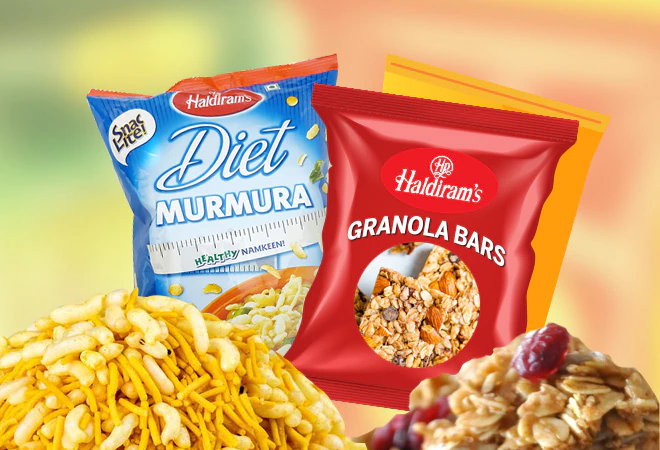Murmura to granola! Haldiram's sets eyes on India's health grocery store

Image: Collected
A.K. Tyagi, Executive Director, of the country's largest snack-maker, Haldiram Snacks, statements that traditional Indian namkeens are healthier than almost all of their western counterparts. "All our namkeens are created out of moong dal, channa dal or besan. They are saturated in health proteins and gluten-free also," he says. Though the snack-maker is aggressively expanding its health foodstuff portfolio, Tyagi believes the marketplace for traditional snacks will be bigger. Health foods may grow more quickly on less base. "India has a issue of malnutrition too, hence, you will see a large group of consumers who want to take fried food," he further explains.
Haldiram's recently entered right into a 51:49 jv with South African overall health food company, Futurelife (it had been earlier in talks with Kellogg's for a good JV), under which it released items such as granola, protein powders and oats. Tyagi says that Haldiram's already had a robust healthful Indian snack portfolio in the sort of roasted channa, roasted peanuts, diet murmura and bhel and the JV would expand its perspective to be not only a tasty Indian snack brand but also a wholesome food brand. However, style and health haven't met eye to attention in India. The common Indian has always recommended taste to health and this is why why many food corporations burnt their fingers if they got into medical food category. The food or snack they introduced was not tasty enough and the Indian consumer dismissed it.
Therefore, how would a manufacturer such as for example Haldiram's which is synonymous with style and quality make its health foodstuff tasty enough to woo its customers? Tyagi says they'll never launch something unless they are completely sure it will be well-liked by the buyers. He also says that if indeed they could Indianise a western item like potato chips, they will come to be able to Indianise oats and granola also. "Indian corporations such as for example Patanjali and Marico already are doing oats and are successful. Also, the pandemic has heightened preference for oats. It is the right period to enter the marketplace."
Tag Bunn, MD, Futurelife, says, they are working closely with Haldiram's to have a feeling of flavour profiles that would be more associated with the Indian consumer. "The thing we won't do is to dictate to Indian buyers what they should consume."
Though Tyagi agrees that the business's health food products could have takers usually in the metro marketplaces, he feels it really is their distribution might which will give them an edge. He believes that a lot of multinationals burnt their fingers looking to get into wellbeing foods because they does not just copy dishes that worked in their home countries, nonetheless they also didn't discover how to reach consumers.
"You must make your product obtainable. Most brands have wonderful products but they cannot distribute. They are being used to distributing just in modern retail outlets and in India that comprises simply just 10 % of the entire retail market. Around 90 % revenue comes from the traditional retailers and we can be found in 2.5 million unorganised outlets."
Tyagi says that the distribution has to match with their merchandise. "We will never launch frozen goods as we don't possess the distribution network. We have launched products which can be placed in ambient temperature."
The Haldiram's-Futurelife products have currently been launched in the North and within the next year-and-half will be rolled out across the country. Haldiram's exports its snack foods to 80 countries. In India the $1 billion company has a 20 % share of salty snack foods market and a 30 % share of traditional snack foods market.
Source: https://www.businesstoday.in
Previous Story
- Govt, FAO collaborating on increasing food safety scenario...
- US stocks of cheese, seafood, shoe, furniture, more...
- Costco, Full Foods rise in Greenpeace rankings of...
- 4 common food additives that are harmful for...
- Kenilworth College students Nonprofit Clothing Line Come to...
- In Jessup, turning food waste into energy then...
- Virginia moves nearer to ban plastic foam containers
- Supermarkets Chase Healthy Gains From Health Food